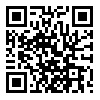Tue, Dec 9, 2025
| فارسی
Volume 10, Issue 1 (8-2015)
bjcp 2015, 10(1): 95-110 |
Back to browse issues page
Abstract: (9155 Views)
The aim of the present study was to validate the Pathological Narcissism Inventory (PNI) in a sample of Iranian university students. The PNI was developed using a rigorous translation/back-translation process. Participants consisted of 473 (195 female, 278 male) university students in Tehran, Iran including, University of Tehran, Tehran Medical University of Tehran, Allameh Tabata’ei University, Tarbiat Modares University, Amirkabir University, Islamic Madhahib University, and Alzahra University. Participants completed the Iranian PNI, the Eysenck Self-Esteem Scale (ESES), and the NEO Personality Inventory-Revised (NEOPI-R). Results indicated that the PNI and its scales had convergent validity with the Eysenck Self-Esteem Scale and the neuroticism factor of the NEOPI-R. Results also showed high internal consistency according to Cronbach’s alpha and good test-retest reliability in the PNI and its scales in a 15-day period. Exploratory factor analysis and parallel analysis and exploratory factor analysis indicated that a seven-factor model. However an item-level confirmatory factor analysis did not exhibit acceptable fit. On the other hand, confirmatory factor analysis on narcissistic grandiosity and narcissistic vulnerability showed good validity of the PNI in these factors. According to the present findings, The PNI has acceptable validity and reliability. Implications for research and clinical applications of the PNI in an Iranian student population is discussed.
Keywords: the Pathological Narcissism Inventory, construct validity, convergent validity, test-retest reliability
Type of Study: Research |
Subject:
Special
Received: 2014/04/5 | Revised: 2015/09/20 | Accepted: 2014/11/19 | Published: 2015/09/20
Received: 2014/04/5 | Revised: 2015/09/20 | Accepted: 2014/11/19 | Published: 2015/09/20
| Rights and permissions | |
 |
This work is licensed under a Creative Commons Attribution-NonCommercial 4.0 International License. |

